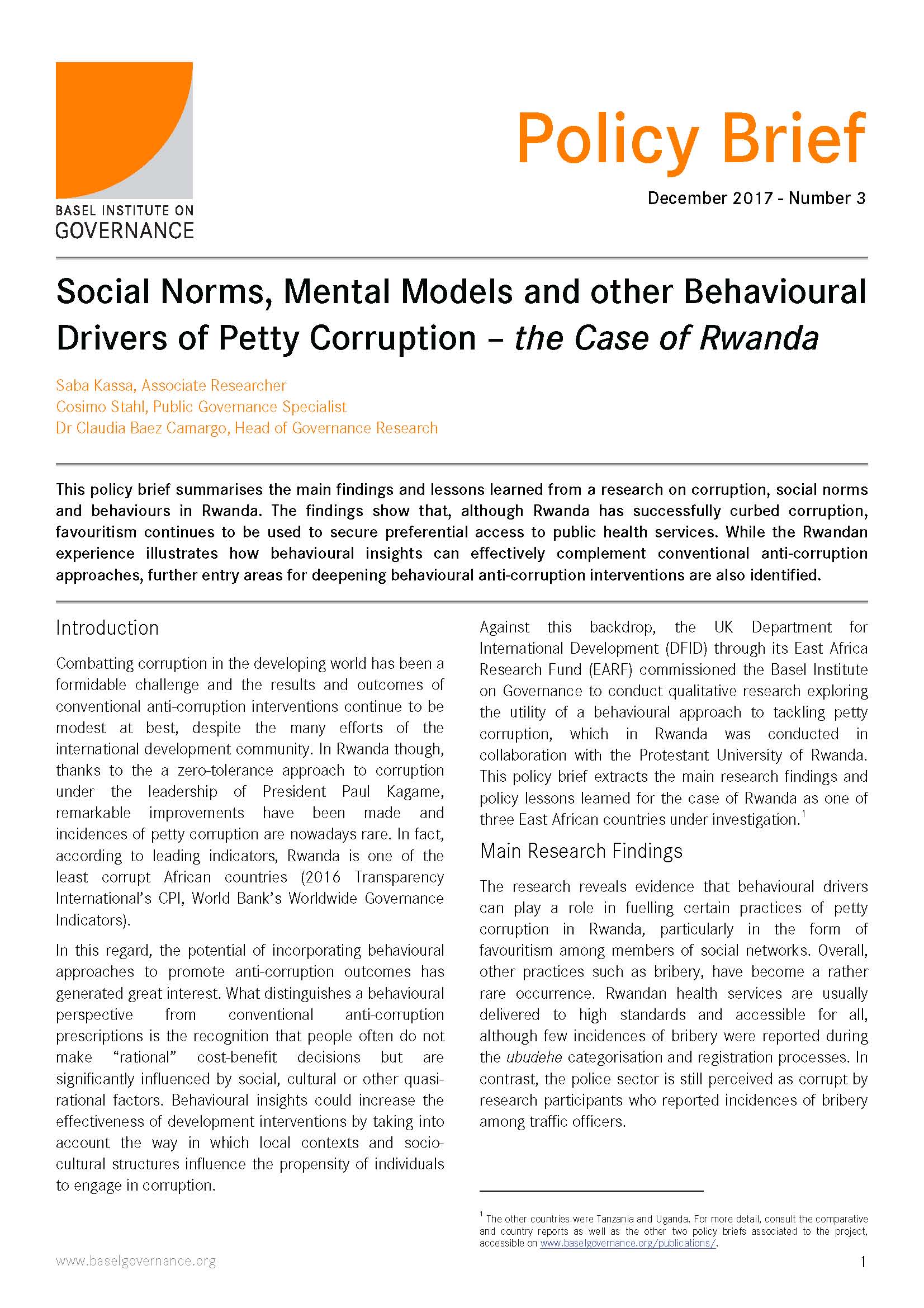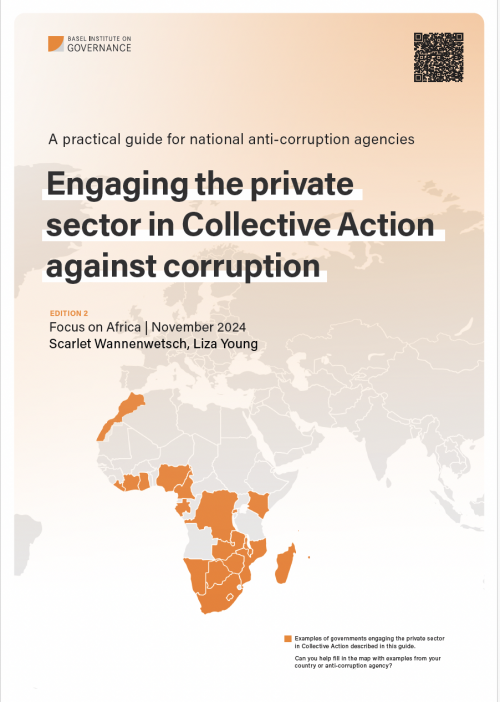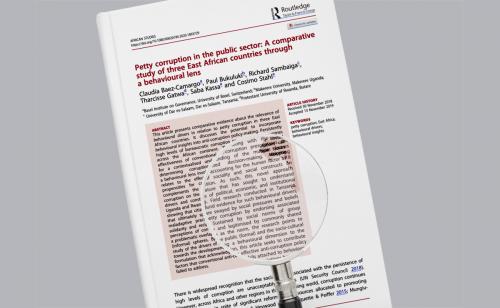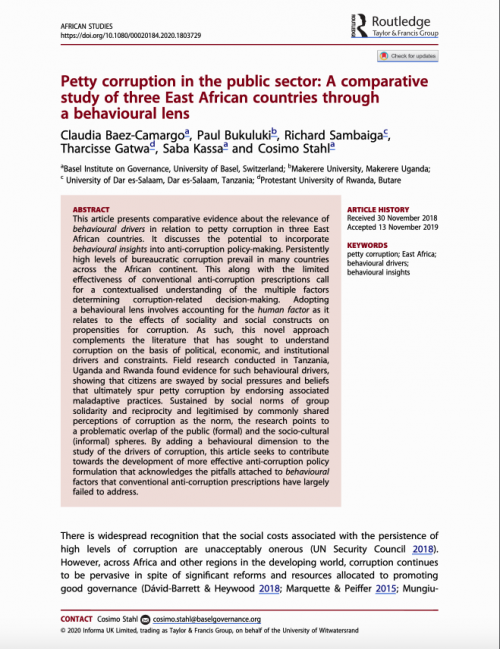Policy Brief 3: Social norms, mental models and other behavioural drivers of petty corruption – the case of Rwanda
This Policy Brief summarises the main findings and lessons learned from a research on corruption, social norms and behaviours in Rwanda. The findings show that, although Rwanda has successfully curbed corruption, favouritism continues to be used to secure preferential access to public health services.
While the Rwandan experience illustrates how behavioural insights can effectively complement conventional anti-corruption approaches, further entry areas for deepening behavioural anti-corruption interventions are also identified.
About this Policy Brief
This publication is part of the Basel Institute on Governance Policy Brief series, ISSN 2624-9669.
It is licensed under a Creative Commons Attribution-NonCommercial-NoDerivatives 4.0 International License (CC BY-NC-ND 4.0).
Suggested citation: Baez Camargo, Claudia, Cosimo Stahl, and Saba Kassa. 2017. "Social norms, mental models and other behavioural drivers of petty corruption – the case of Tanzania." Policy Brief 4, Basel Institute on Governance.
Links and other languages




